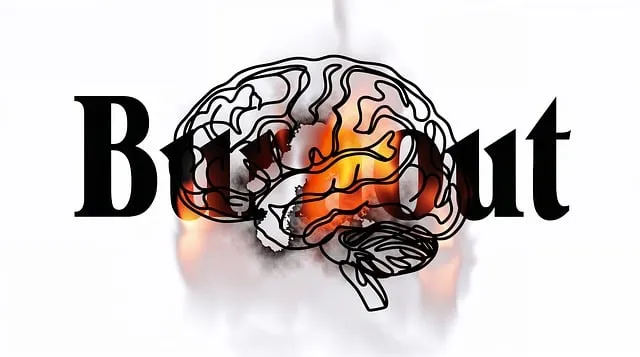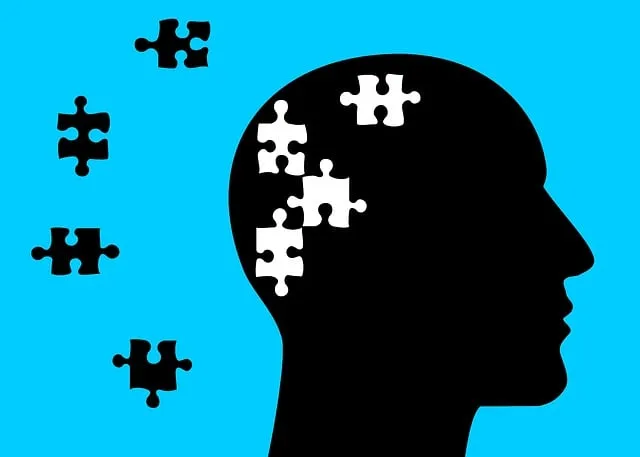Mental health diagnosis in Lafayette, facilitated by Kaiser Permanente, has evolved through innovative practices aiming to improve accuracy and accessibility. Overcoming human error and cultural biases, Kaiser integrates compassion cultivation, advanced assessment tools, and stress management programs. By addressing complex symptoms, co-occurring disorders, and individual experiences, they enhance patient care. Utilizing AI and machine learning alongside resilience-building initiatives, Kaiser Permanente Lafayette strives to provide better coverage for mental health services while reducing stigma, thereby improving patient outcomes.
Mental illness diagnosis accuracy is a critical aspect of patient care, yet it remains a challenging area. This article explores efforts to enhance diagnostic precision, focusing on innovative strategies and successful collaborations. We delve into the current landscape of mental health diagnosis, highlighting challenges faced by healthcare providers, including nuances in symptom presentation and cultural factors. By examining Lafayette’s partnership with Kaiser Permanente, we demonstrate how collaborative initiatives can improve access to comprehensive mental health services, ensuring accurate diagnoses for all patients.
- Understanding Mental Health Diagnosis: The Current Landscape
- Kaiser Permanente's Approach to Mental Illness Diagnosis
- Challenges in Achieving Accurate Diagnoses
- Innovative Strategies for Improving Diagnostic Accuracy
- Lafayette and Kaiser: Enhancing Mental Health Care through Collaboration
Understanding Mental Health Diagnosis: The Current Landscape

Mental health diagnosis has come a long way, yet remains a complex and often challenging field. In today’s world, understanding mental illness involves navigating a intricate landscape where symptoms can be subtle, co-occurring disorders are common, and individual experiences vary greatly. The current approach to diagnosis relies heavily on self-reported symptoms, clinical interviews, and standardized assessments—a method that, while valuable, can be subject to human error and cultural biases. This is especially relevant when considering conditions like depression, anxiety, or bipolar disorder, where presentation and severity can differ significantly from person to person.
In this context, organizations like Kaiser Permanente play a crucial role in improving diagnosis accuracy. They offer comprehensive mental health services and are known for their innovative practices, such as integrating Compassion Cultivation Practices into treatment regimens, which not only enhance patient care but also promote resilience building and mood management. By focusing on these aspects, healthcare providers can better support individuals in managing their mental health and improve overall diagnostic precision. Additionally, Kaiser’s reach and resources enable them to advocate for policies that address the need for more accessible, accurate, and culturally sensitive mental health care, particularly in areas like Lafayette where access to specialized services may be limited.
Kaiser Permanente's Approach to Mental Illness Diagnosis

Kaiser Permanente, a prominent healthcare provider, has made significant strides in enhancing the accuracy of mental illness diagnoses. Their approach focuses on several key areas to ensure that members receive the best possible care for their mental health concerns. One of the cornerstones of Kaiser’s strategy is its comprehensive Risk Assessment for Mental Health Professionals. This tool equips healthcare providers with advanced techniques to identify mental health issues more accurately, thereby facilitating timely interventions.
By integrating this risk assessment into routine patient evaluations, Kaiser Permanente aims to reduce the Mental Illness Stigma often associated with seeking help. Additionally, they prioritize Stress Management as a preventive measure, recognizing that many mental health conditions stem from or are exacerbated by stress. This holistic approach ensures that Lafayette residents covered by Kaiser can access not only diagnostic services but also comprehensive treatments aimed at improving their overall well-being.
Challenges in Achieving Accurate Diagnoses

Mental illness diagnosis accuracy is often hindered by several factors. One significant challenge lies in the subjective nature of symptoms, which can vary greatly from person to person and across different contexts. This makes it difficult for healthcare professionals to pinpoint the exact cause or type of mental health condition a patient might be experiencing. For instance, what seems like severe anxiety could actually be a manifestation of depression, requiring entirely different treatment approaches.
Additionally, many individuals struggle with symptoms that overlap between various disorders, adding another layer of complexity. This is where comprehensive assessments become crucial. Organizations like Kaiser Permanente in Lafayette offer resources and cover mental health services, promoting initiatives to enhance diagnosis accuracy. They emphasize evidence-based practices, such as incorporating Stress Reduction Methods and Self-Care Routine Development for Better Mental Health, alongside traditional therapy models. Building empathy among healthcare providers is another key strategy; understanding the patient’s experience and background can significantly improve diagnostic accuracy and foster better treatment outcomes.
Innovative Strategies for Improving Diagnostic Accuracy

In the quest for enhancing mental illness diagnosis accuracy, innovative strategies are reshaping the landscape of healthcare. One notable approach involves integrating advanced technologies like artificial intelligence (AI) and machine learning algorithms. These tools can analyze vast amounts of patient data—from medical history to behavioral patterns—to assist professionals in making more precise diagnoses. For instance, AI-driven systems can identify subtle correlations between symptoms and specific mental health disorders, benefiting patients seeking care at Lafayette or Kaiser facilities.
Moreover, resilience building and mental health awareness programs are gaining traction. By fostering a culture of open dialogue and encouraging individuals to seek help without stigma, these initiatives aim to boost confidence in the diagnostic process. Mental Health Awareness campaigns, for example, can educate both patients and healthcare providers, ensuring everyone is equipped with the knowledge to recognize and accurately assess mental health conditions. This holistic approach, combining technological advancements with enhanced awareness, promises to improve diagnosis accuracy and ultimately, patient outcomes.
Lafayette and Kaiser: Enhancing Mental Health Care through Collaboration

Lafayette and Kaiser are leading the way in enhancing mental health care through their collaborative efforts. By joining forces, these organizations aim to improve mental illness diagnosis accuracy and reduce the stigma associated with seeking help. They implement innovative strategies such as community outreach programs that focus on raising awareness and providing support for those struggling with anxiety and other mental health challenges.
Through these initiatives, Lafayette and Kaiser not only ensure better access to quality mental health services but also foster an environment where individuals feel more comfortable discussing their struggles openly. Their collaborative approach includes training professionals, integrating digital tools for remote care, and promoting peer support networks, all of which contribute to a holistic improvement in mental illness management and ultimately, anxiety relief.
Mental illness diagnosis accuracy is a multifaceted challenge, exacerbated by complex presentations and stigma. Organizations like Kaiser Permanente are leading the way with innovative approaches, such as collaborative initiatives with Lafayette, to enhance care. By combining advanced tools, data-driven insights, and dedicated support, these efforts aim to improve diagnostic precision, ultimately fostering more effective treatment plans. As we navigate the evolving landscape of mental health services, continuous improvement in diagnosis accuracy will be vital to ensuring folks receive the high-quality care they deserve.






